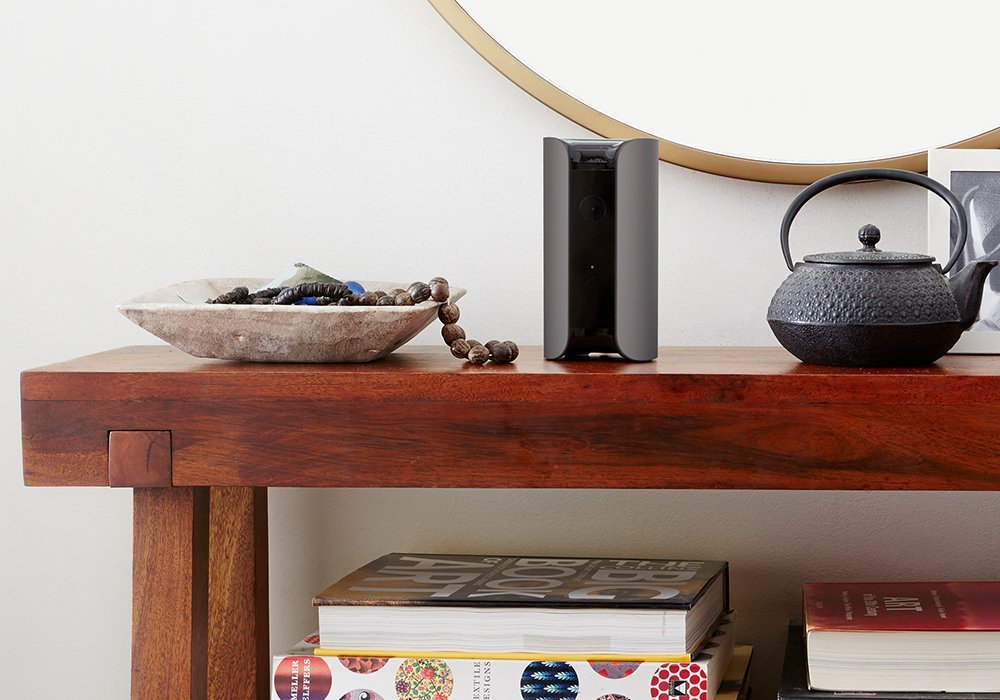Tom's Guide Verdict
The Canary View is a stripped-down camera that does a good job of detecting when a person is in a room, but it has poor video quality, few features and limited options.
Pros
- +
Inexpensive
- +
Effective person detection
- +
Easy, versatile Activity Zone masking
Cons
- -
Large
- -
Pixelated video
- -
Minimal features and options
- -
Two-way audio is available only for cloud-plan subscribers
Why you can trust Tom's Guide
The Canary View is a large, eye-catching camera that sits on a table or shelf. In other words, it's not a device that's easy to hide. Meant to be Canary's budget camera, the $99 View lacks the environmental sensors of the similarly priced Canary All-in-One camera. But while the View does a nice job of warning you when it detects a person, it has few other options and video quality could be better.
Canary View Specs
| Video Resolution | 1080p HD |
| Field of View | 147 degrees |
| Night Vision | 12 IR LEDs |
| Network Connectivity | 2.4 GHz Wi-Fi (802.11 b/g/n) |
| Smart-Home Connectivity | Google Assistant, Amazon Alexa and Wink (IFTTT) |
| IFTTT Connectivity | Yes |
| Audio | Two-way is only for cloud-plan subscribers |
| Mobile Devices Supported | Android 4.4+, iOS 10+, Apple Watch, Android Wear, Apple TV |
| Web Browsers Supported | Latest version of Google Chrome or Apple Safari |
| Cloud Storage & Monitoring | $99 for two years of service, includes a free camera if you buy on the Canary website |
| Local Storage | None |
| MSRP | $99 |
Design
The Canary View is a large, stylish, dark-gray column. It's 6 inches tall, has a 3-inch diameter and weighs a little more than 12 ounces. On the flat, black, shiny front of the column are the lens, microphone and 12 infrared LEDs for night vision. The speaker is on the top. The View displays a very obvious white light at its base when it detects and records motion and when someone is watching a live view from the camera.
Meant as a budget device, the View is essentially a stripped-down version of Canary's more full-featured All-in-One, which is the same price. For instance, the View doesn't have the All-in-One's siren; sensors for temperature, humidity and air quality; or an Ethernet connection.
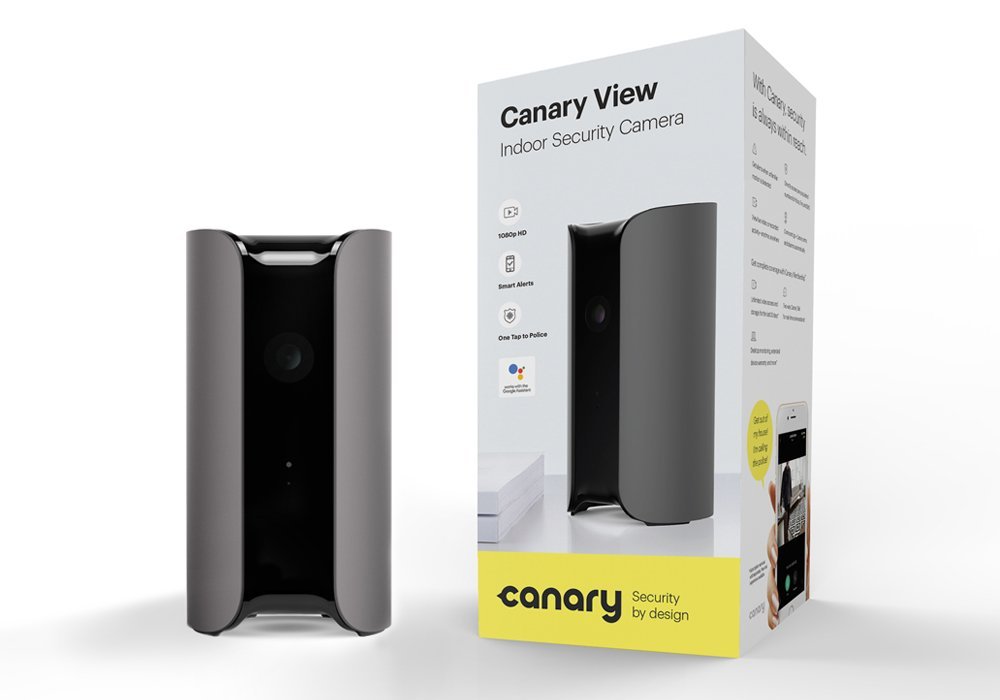
The View has no mounting hardware; it sits on horizontal spaces. Because of its rigid, columnar design, it can't be rotated up or down. Sidewise rotation involves simply placing the camera in a different position.
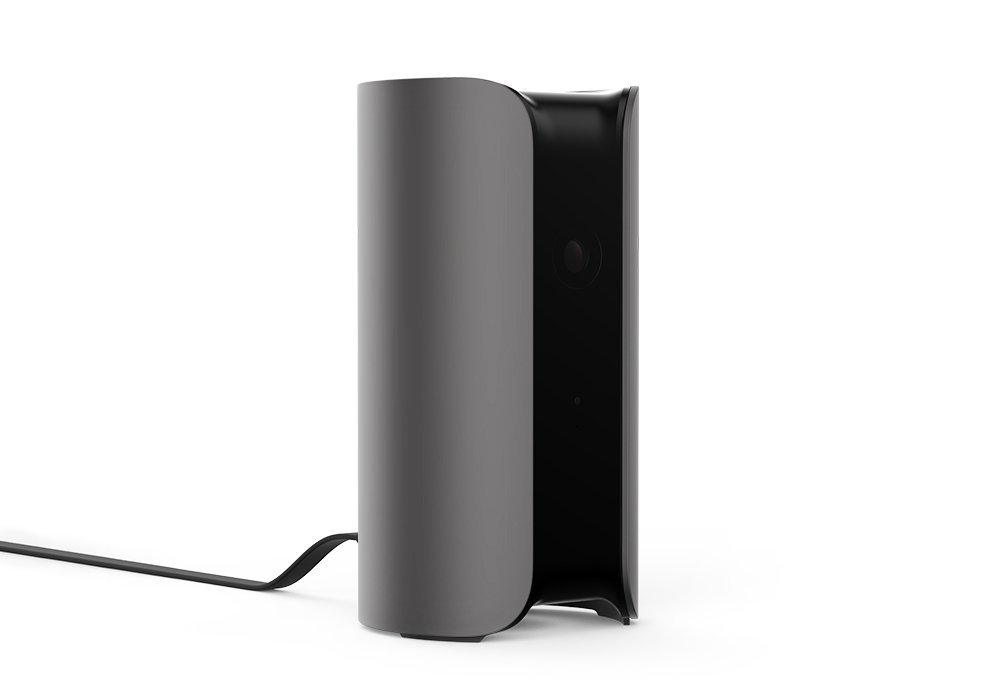
The flat, 79-inch (6.6 feet) USB cord plugs into a mini-USB port in the back and into a round, 1.5 x 1-inch power adapter that obscures any adjacent electrical outlet. The View uses AES 256-bit data encryption.
Video and Audio Quality
The Canary View features a 2-megapixel, 0.3- inch CMOS sensor, a glass lens and a 147-degree field of view. Based on our testing, the 1080p video looks just average.
Our daylight video (above) was bright with nice color. But the image was pixelated, and motion was blurred. The 12 infrared LEDs did a good job of illuminating night scenes, and the night vision videos (below) were a bit better than the daylight ones, though there was still a bit of pixelation. Though we were able to distinguish a person's face in our test videos, the overall image quality was poor. However, the recorded sound was clear, with no noise or distortion.
The Canary View is capable of two-way audio. However, the two-way communication is enabled only if you subscribe to the company's cloud plan (details on that below). In our tests, a person speaking via the mobile app to the camera tended to sound noisy, but her voice was distinctly audible and of a good volume throughout the room.
The daylight video was bright with nice color. But the image was very pixelated, and motion was blurred.
On the other hand, when listening on our phones, we could hear a voice in the room with the camera through the mobile app only when the person stood within 5 feet of the camera, directly in front of it. Farther away, it was very soft and difficult to hear.
Motion Detection and Scheduling
The View handles motion detection differently than most security cameras do. It has three modes: Away, Home and Night. (It doesn't have sound detection.)
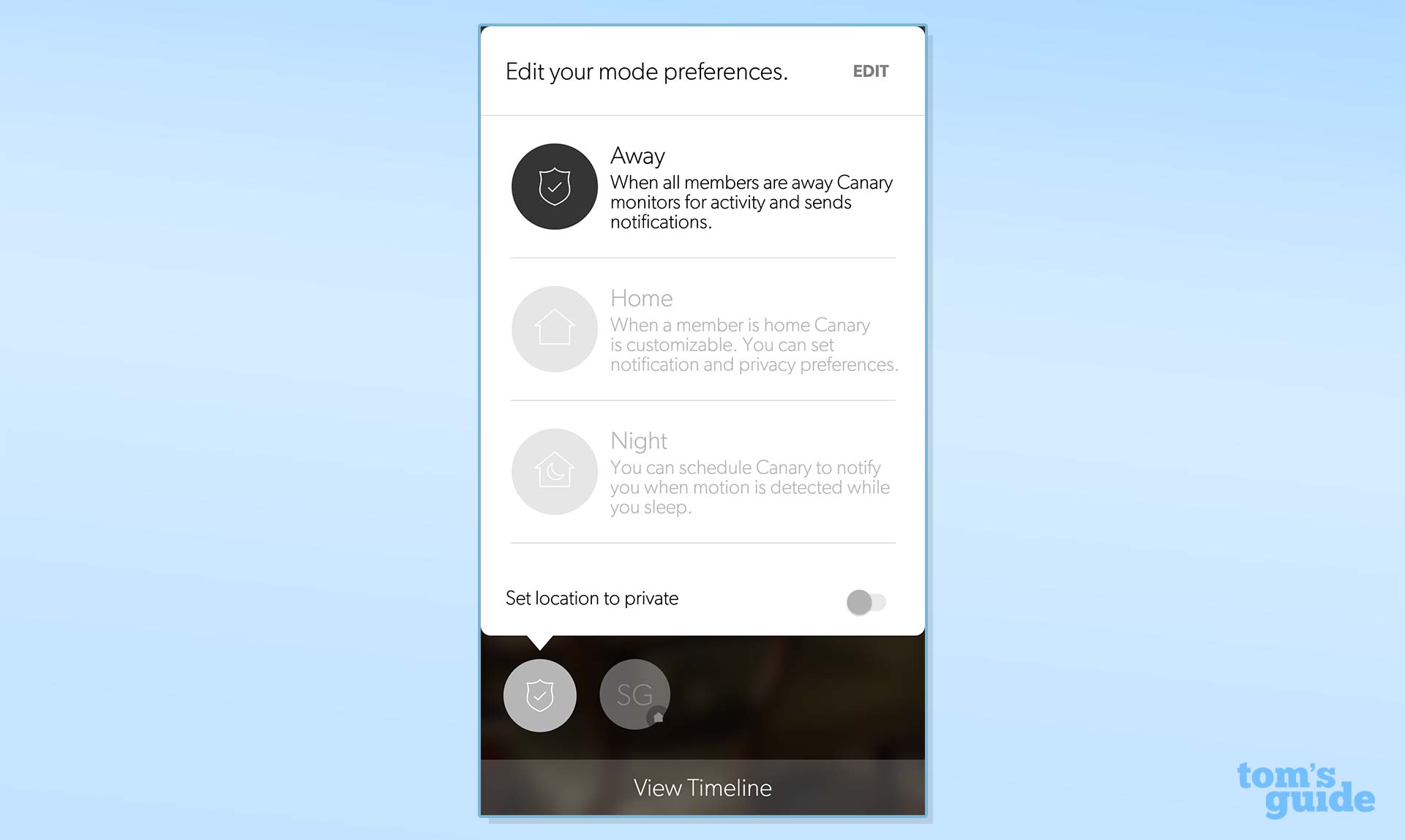
The Away mode uses geofencing to determine when you (and your phone) leave home. The camera will then auto-switch to the Away mode and send notifications if motion is detected. In the Away mode, you can set the camera to record and/or send alerts when any motion is detected or only when a person is detected — or not at all.
Night is the only mode that has scheduling, and it is very limited.
You can set the Home mode to not record videos or send any notifications, providing full privacy. Or, you can set it to record and/or send notifications when motion is detected, or only when a person is detected.
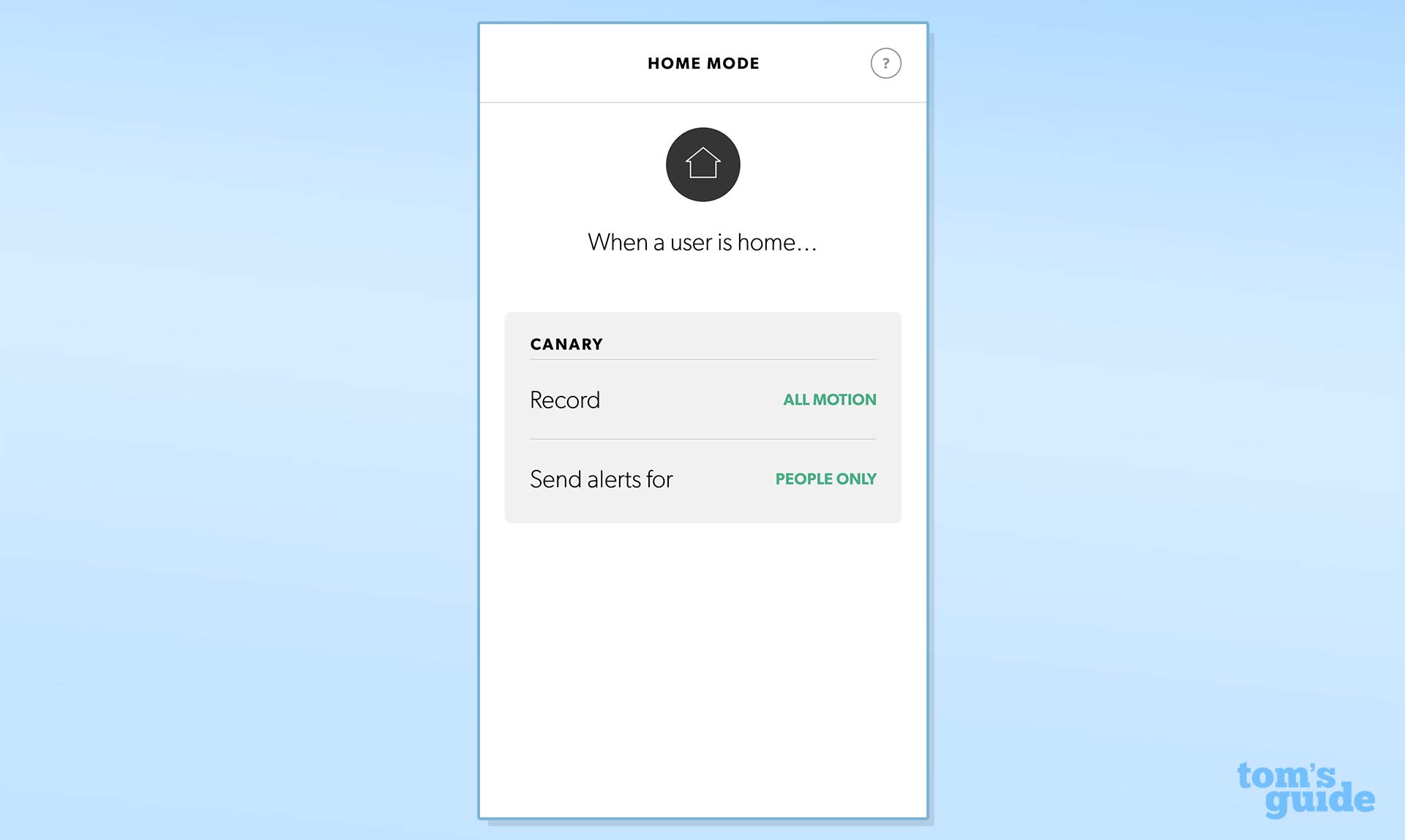
Night is the only mode that has scheduling, and it is very limited; you can define only one time period, which is applied to all days of the week. In addition, Night mode has the same options for recording, notifications and privacy as the Home mode.

Canary also handles activities zones differently, inverting the typical response by using Masks that select areas the camera should ignore. By tapping and dragging polygonal shapes, you can easily define up to four irregularly shaped Masks.
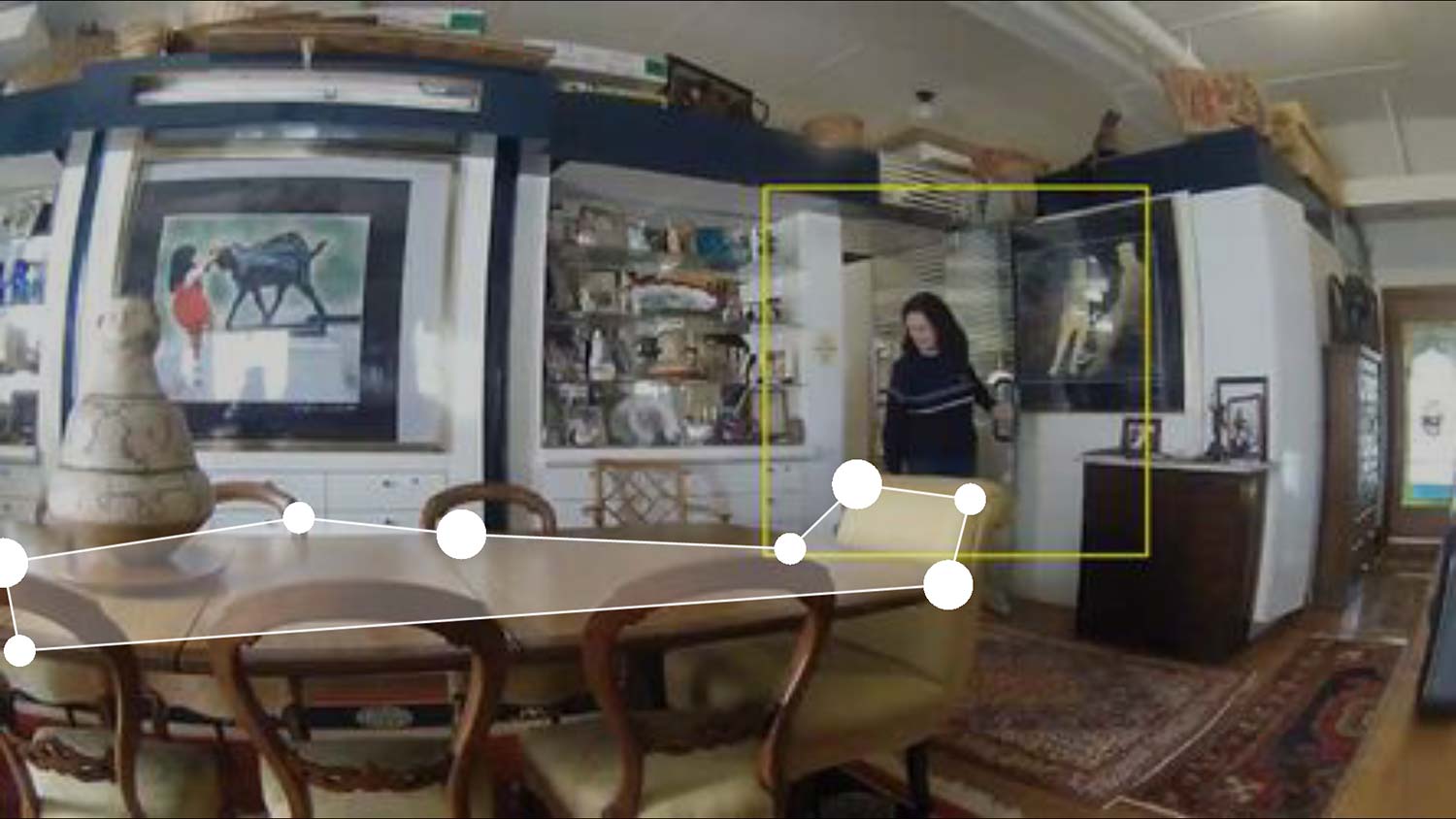
You can also adjust the sensitivity of the Canary's motion detection.
MORE: Top-Rated Wireless Home Security Cameras
When we lowered the slider to 3 (from a max of 10), the Canary View did a rather good job in recognizing a person, as opposed to an animal or the movement of shadows. You can also teach the View by tagging videos according to what was detected — a person, cat, dog, car, tree, baby crying, curtains, etc. Although the Canary View records all activities, it will send notifications only for those it deems important (such as a person detected).
Cloud Storage
You can get a Canary View for $49 with a one-year subscription to Canary's cloud storage plan ($99). If you buy it on the Canary website; if you purchase a two-year contract ($198), then you can get the Canary View for free. (Ed. note (6/18): this was updated to reflect new pricing.)
If you buy your Canary View elsewhere, a 30-day trial membership is included. However, you have to provide your credit card information to activate the trial — something you don't have to do with most other security cameras' trial subscriptions. A 30-day plan that covers up to five cameras costs $9.99 per month or $99 per year. Each additional camera costs $4.99 a month or $49 a year.
In addition to unlimited video downloads, the cloud plan subscription provides two-way audio, desktop streaming of live video and access to video history, "incident support" and an extended two-year warranty. Canary says incident support is help from "members of our team who are experienced in handling the aftermath of a break-in or similar situations," including paperwork advice, assistance navigating police and insurance bureaucracies, and "emotional support."
MORE: Which Security Camera Has the Best Storage Plan?
Those who don't buy the cloud plan have a rather restrictive experience, especially since the View has no local storage. You'll be able to access the live view only on the mobile app; video history is limited to the past 24 hours, and the video clips are only 30 seconds. Other standard features include Activity Zone masking and a one-year device warranty.
Mobile Apps and Web Portal
Canary's software is very limited, though it's nicely organized and easy to use.
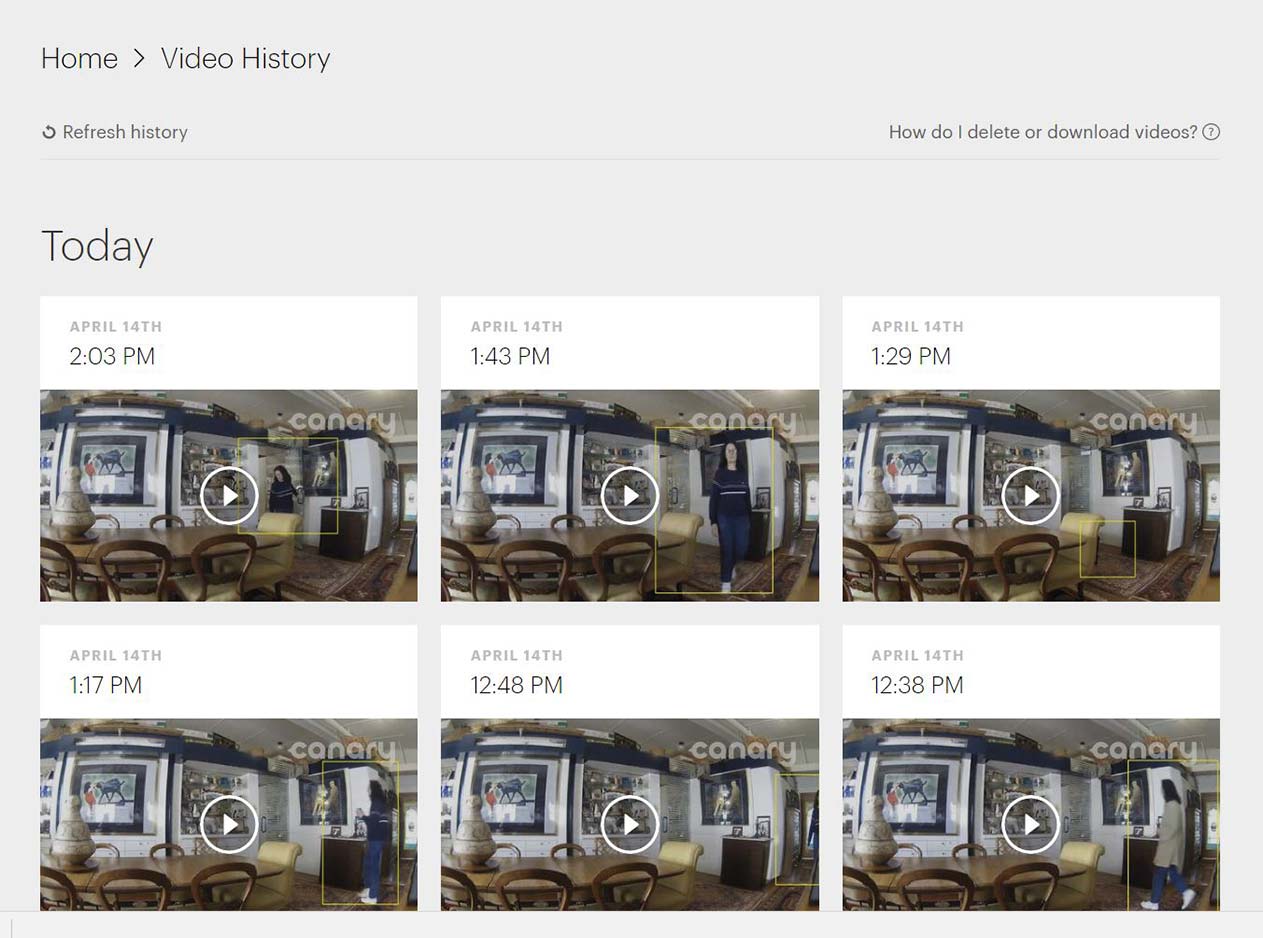
Unlike the software for most other security cameras, the Home page has no recent snapshot from the camera, providing no immediate information. At the bottom of the page are icons for each person on the account; tap an icon to find out if that person is home or away.
In addition to unlimited video downloads, the $9.99 monthly cloud plan provides two-way audio, desktop streaming of live video, "incident support" and a two-year warranty.
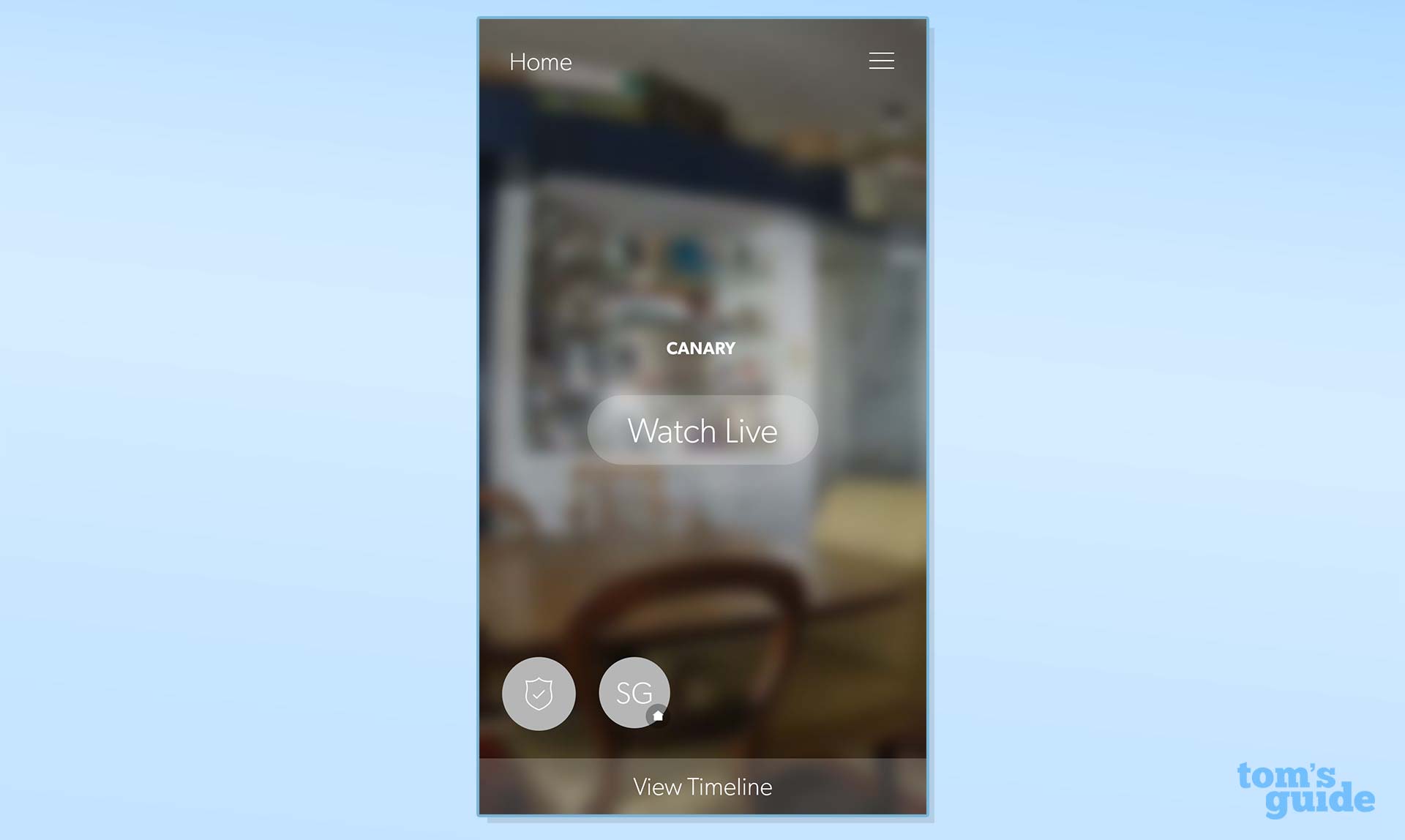
Though the app's "Timeline" isn't a traditional horizontal timeline, it intelligently minimizes the number of taps required to view an incident video. The timeline also notes other events, such as when a mode has been switched, a member of the account has left or returned home, or a preference has been changed. A separate timeline displays all activity when the camera is in Away mode. You can bookmark important videos to refer to later.
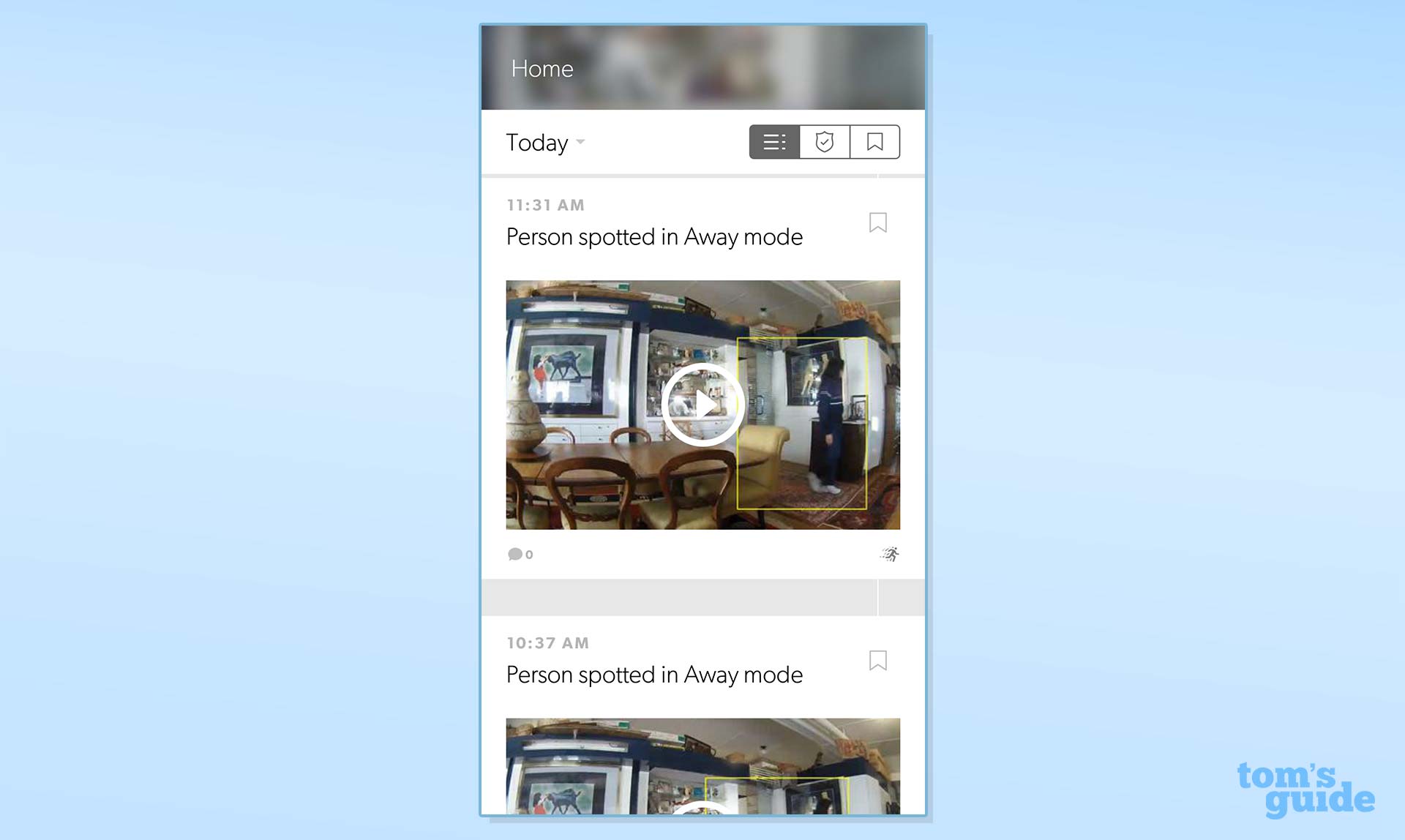
One of the nicer features in Canary's app is an Emergency Call button, located on the bottom of the Live View screen. It calls the phone numbers for your local police, fire and EMS that you save in your settings.
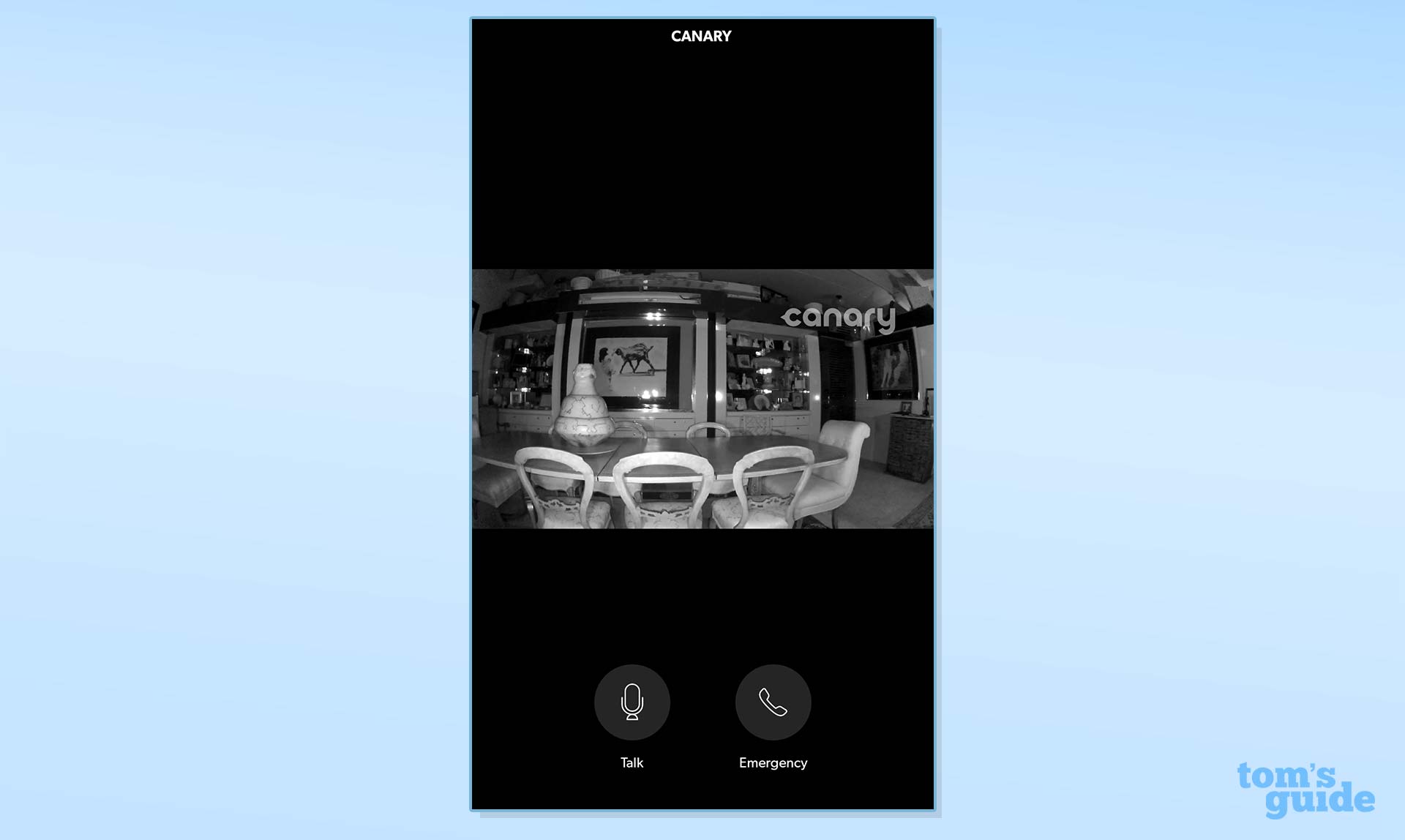
The web portal is available only if you buy the cloud plan and is even more limited than the mobile app. You can access the live view and video history, but you can't set any preferences, download videos or change the mode.
Smart-Home Integration
The Canary View is compatible with Google Assistant, Amazon Alexa and Wink (via IFTTT).
Bottom Line
The list price for the Canary View is $99. But if you buy a two-year ($99) membership to the cloud plan on the Canary website, the View is free. For nearly the same price (including a free cloud plan), however, the Blink XT represents a better choice among bargain security cameras, with good indoor-image quality, more versatile scheduling, the option to use it outdoors, and a much less conspicuous profile. The Canary is good at detecting people, though, whereas the Blink doesn't separate people from motion detection. Nonetheless, Canary's camera needs improvement elsewhere.
Credit: Canary
Sally Wiener Grotta is the president and lead analyst of DigitalBenchmarks test lab (www.DigitalBenchmarks.com). The scripts she created for various tech publications for testing and evaluating digital cameras, image quality, software and related technologies have become industry standards. Among her numerous books is the first major volume on image processing “Digital Imaging for Visual Artists” (McGraw-Hill), co-authored with Daniel Grotta. Her hundreds of reviews, stories and columns have appeared in scores of magazines, journals and online publications.
